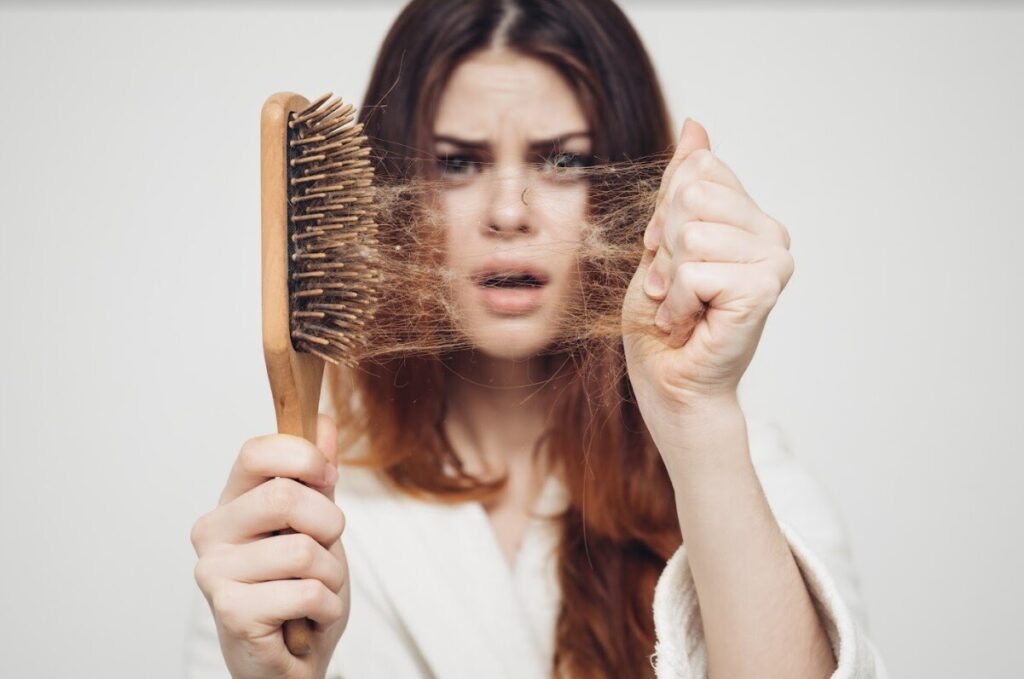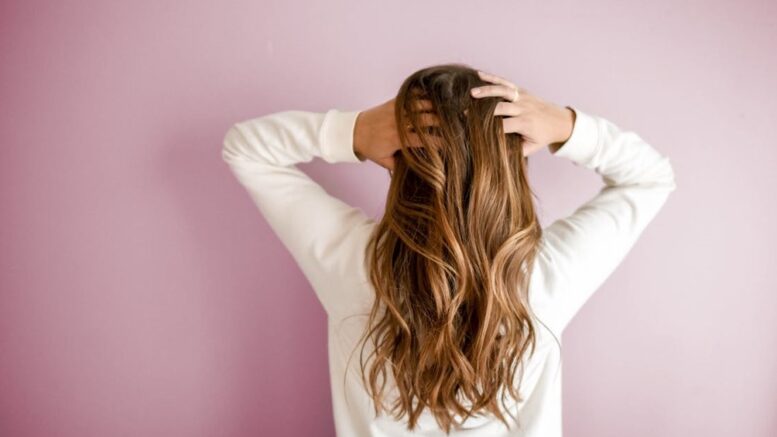Hair loss can be a serious problem for women, even more than for men. Although less common in women, there are several forms of hair loss that can affect them. Luckily enough, there are also several treatments available. Let’s have a look.
Types of Hair Loss
Androgenetic Alopecia
Androgenetic Alopecia is when a woman has diffuse thinning everywhere on their heads. Men usually do not have this type of hair loss because they have more pattern baldness. Women get this type of hair loss when they might have too much of the male hormone, androgen. This causes them to lose hair, very similar to how men lose their hair.
Telogen Effluvium
This type of hair loss is when a woman goes through a traumatic event such as childbirth, malnutrition, or other event and loses her hair because of this. When this happens the woman’s hair will move from the growing phase or transitional phase into the resting phase. After about six months after the event, the woman’s hair will move into the telogen effluvium phase. This is when her hair will begin to shed massively, up to handfuls at a time.
Complete remission is possible from this if the woman can avoid any more stressful situations. For some women, though, this happens as a chronic disorder where no cause can be found.

Anagen Effluvium
This happens when something distresses the hair follicle and impairs the mitotic or metabolic actions. This usually happens when a woman goes through chemotherapy. Chemotherapy targets all fast-growing cells to destroy the cancer, but it also kills other fast-growing cells such as hair. After chemotherapy, most of the hair can fall out.
Alopecia Areata
Alopecia areata occurs when a woman’s immune system begins attacking the roots of her hair follicles. Women will lose patches of her hair and it happens pretty suddenly. Most patients start regrowing hair within about two years even if there is no treatment.
Traction Alopecia
This type of hair loss occurs when there is trauma to the hair such as tight braiding, tight ponytails, cornrows, or extensions can cause this type of hair loss. If the condition is caught in time, it can be reversed.
Types of Hair Loss Treatment
There are many treatments that say they will reverse hair loss, but only a handful of the treatments actually work. You need to do research to see which ones actually work and which of those would be best for you. There are many scams out there, too, so you must be very careful which one you choose.
Minoxidil
Minoxidil is a product that is used for pattern baldness and is a class of medicine called vasodilators. This product is usually used for men, but can also be used for women, although it is not great for hair loss that is not explained, loss after the birth of a baby, or patchy hair loss.
Panthenol
This is made from vitamin B-5, also known as pantothenic acid, and it happens organically from plant and animal sources. It is used in many beauty products around the world and is very popular for this. It is also used for hair loss and for strengthening hair follicles.
Alpha-Hydroxy Acids
These acids are found in food and include citric acid, glycolic acid, lactic acid, malic acid, and tartaric acid among others.
Cocamidopropyl Betaine
This is a product made for hair care products and can help keep your hair follicles clean and ready for hair to grow. Clean hair follicles can help prepare your scalp for new hair growth.

This product is used in many different hair products and can keep your hair from being frizzy, dry, and brittle. One of the many products that use cocamidopropyl betaine is the best hair loss treatment for women and is a very popular product for regrowing hair. It has proven results and has helped many women.
Conclusion
There are many types of hair loss in women, and many products to help that. Some types of hair loss can be fixed without treatment, while other types need some treatment. The most popular treatments are minoxidil, panthenol, alpha-hydroxy acid, and cocamidopropyl betaine. These treatments can all help you, at least to some extent.
Talk to your doctor for the best treatment for your hair, because your doctor will know what will work for your type of hair loss.
